Abstract
In this paper we question whether the concept of "genetic privacy" is a contradiction in terms. And, if so, whether the implications of such a conclusion, inevitably impact on how society comes to perceive privacy and responsibility generally. Current law and ethical discourse place a high value on self-determination and the rights of individuals. In the medical sphere, the recognition of patient "rights" has resulted in health professionals being given clear duties of candour and frankness. Dilemmas arise, however, when patients decline to know relevant information or, knowing it, refuse to share it with others who may also need to know. This paper considers the notions of interconnectedness and responsibility to others which are brought to the fore in the genetic sphere and which challenge the primacy afforded to personal autonomy. It also explores the extent to which an individual's perceived moral obligations can or should be enforced.
Full text
PDF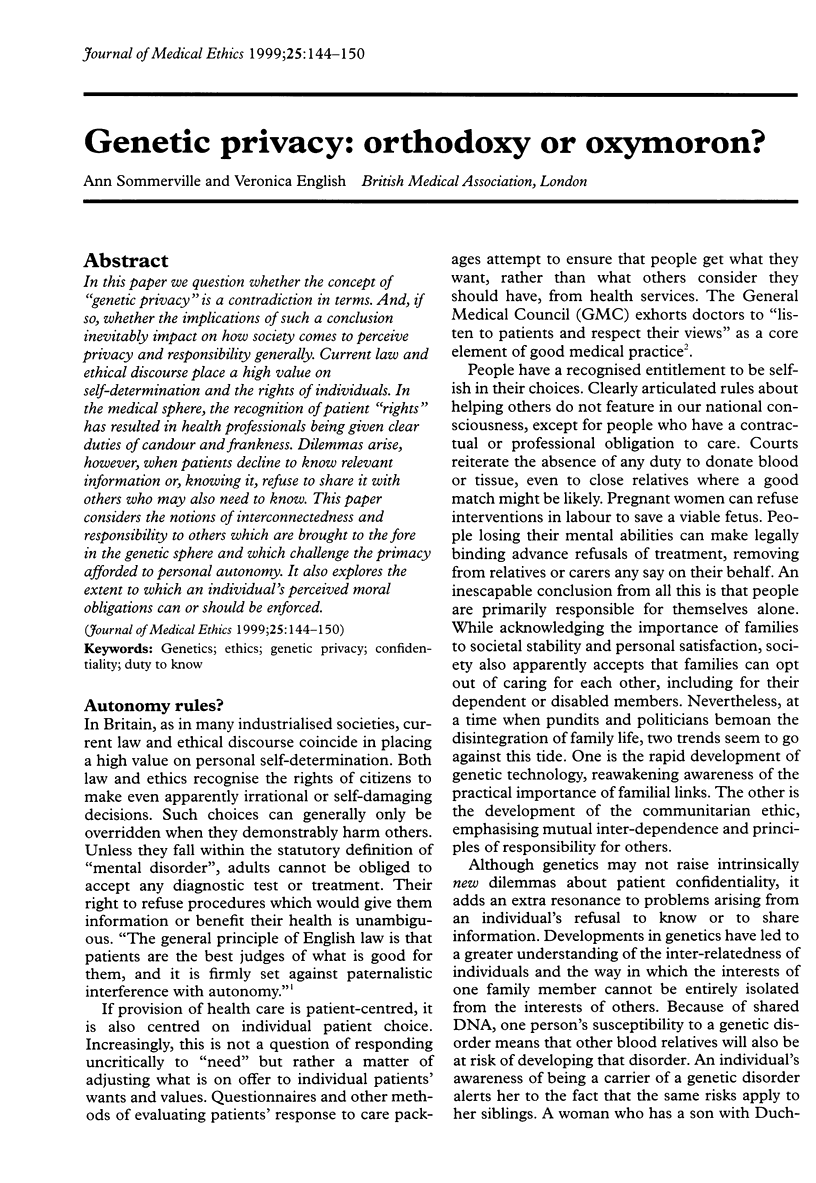
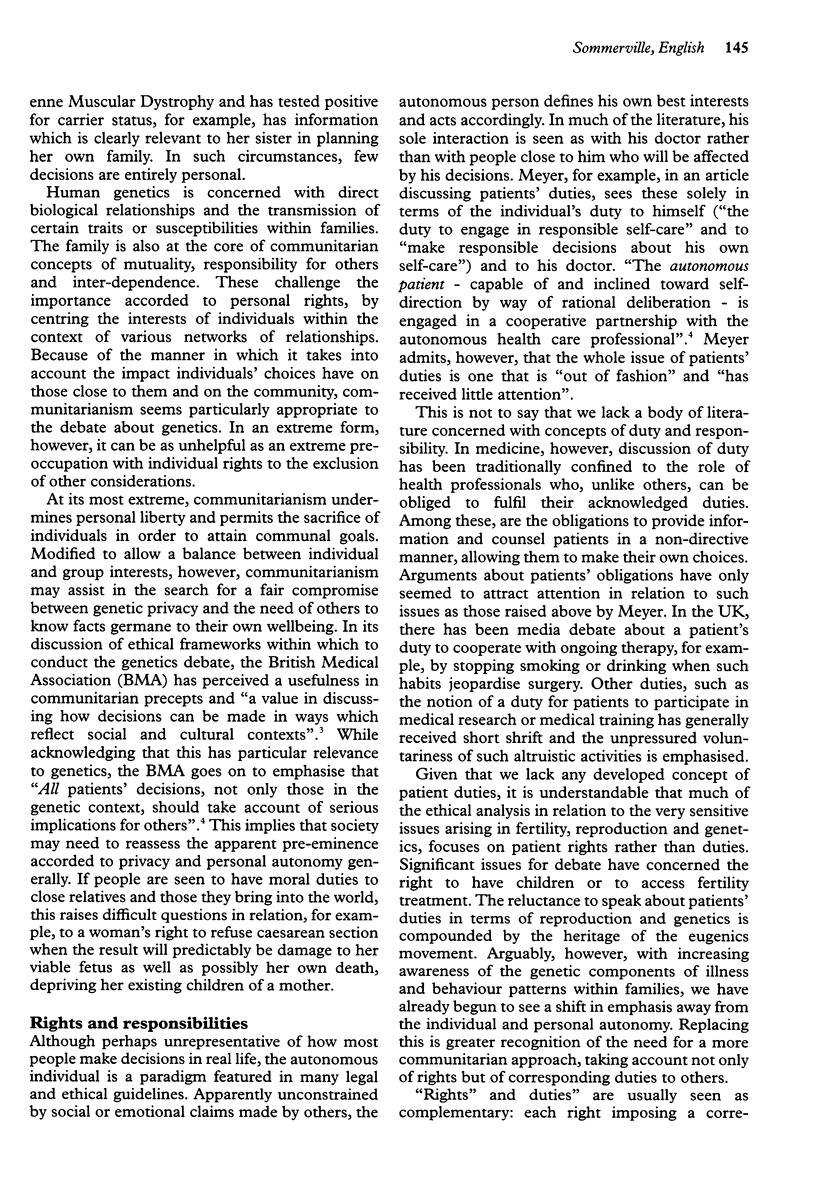
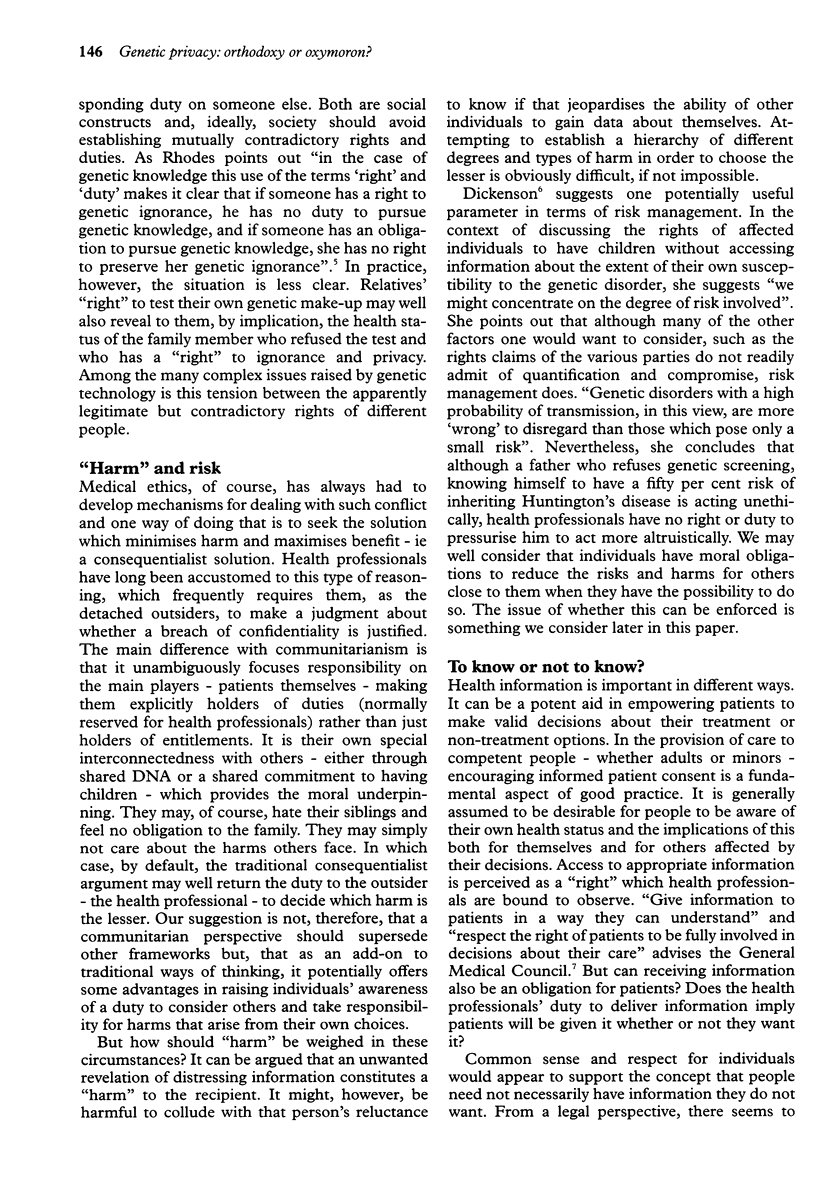
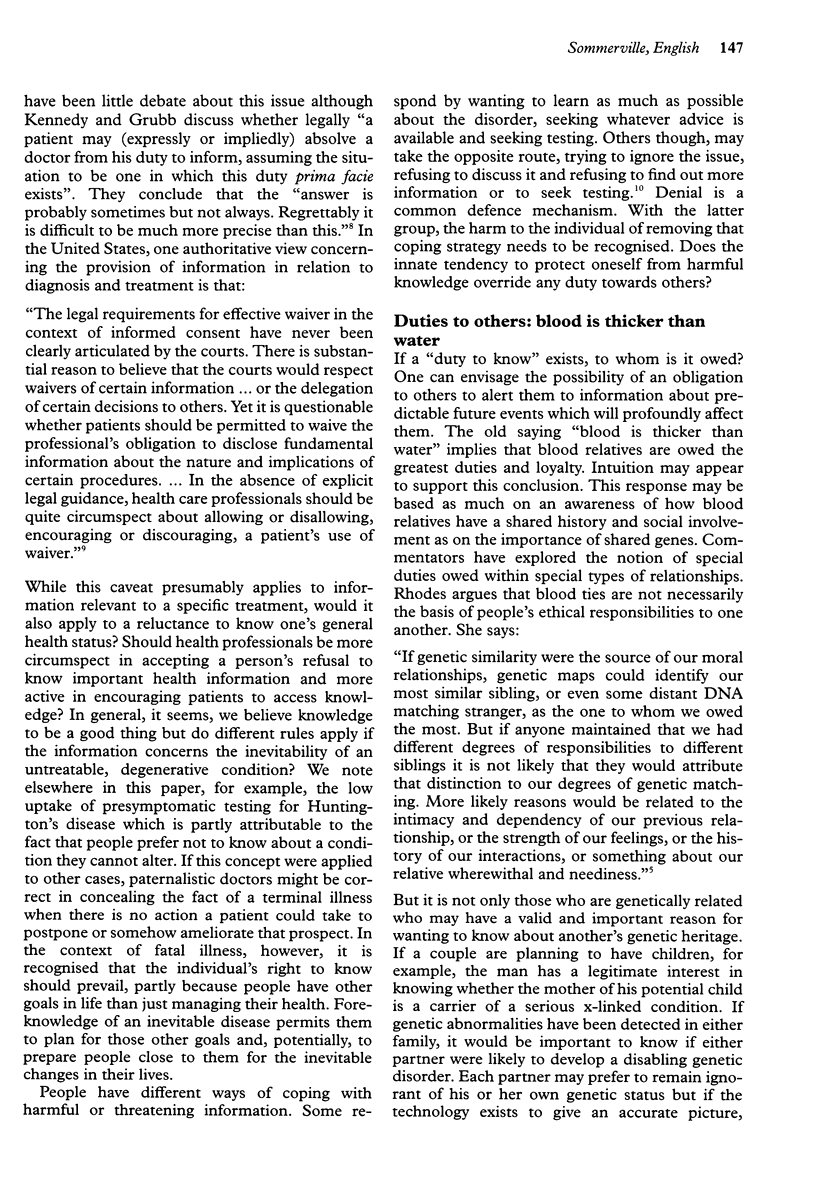
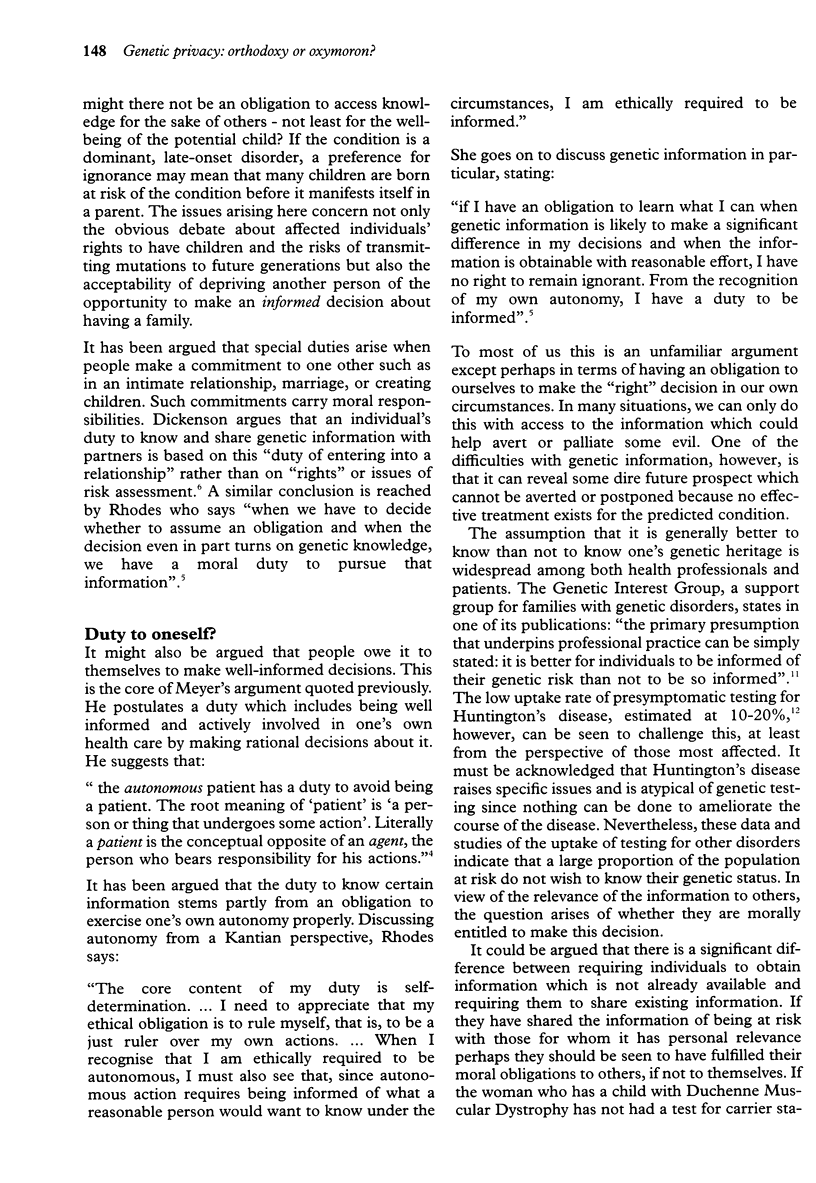
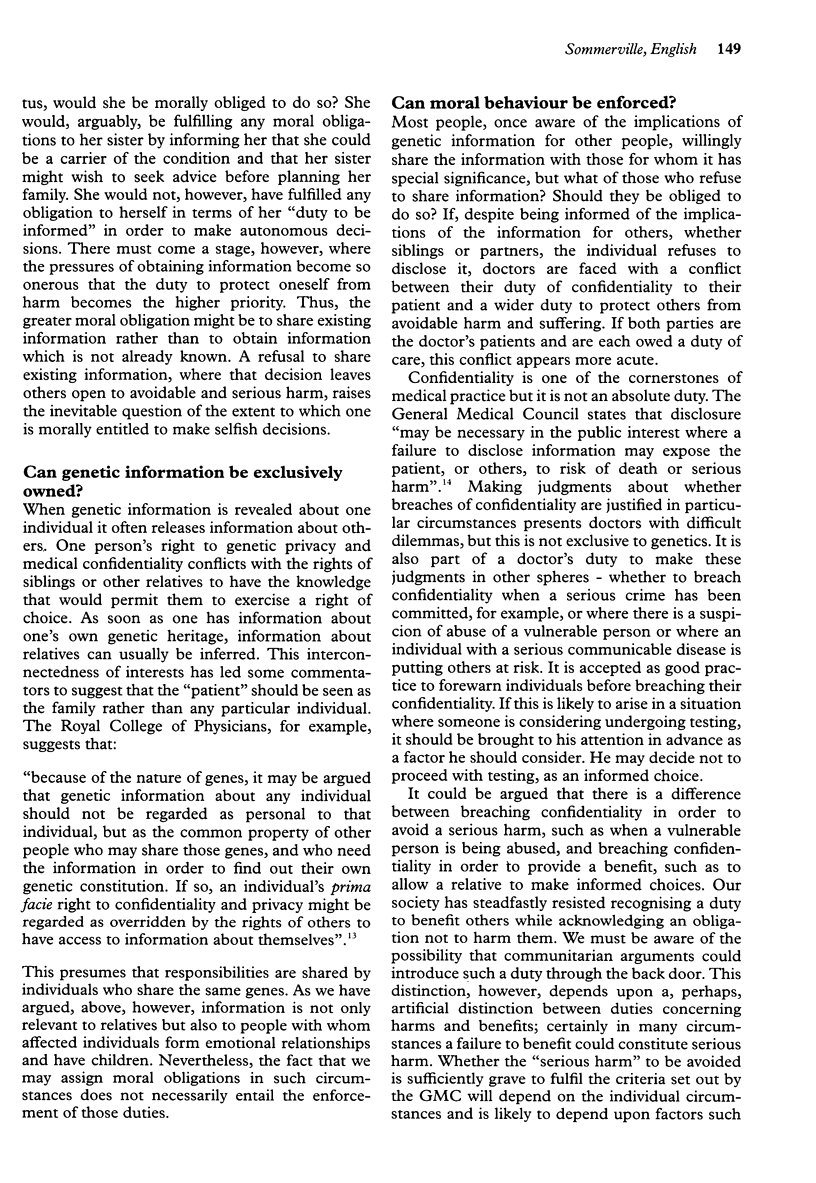
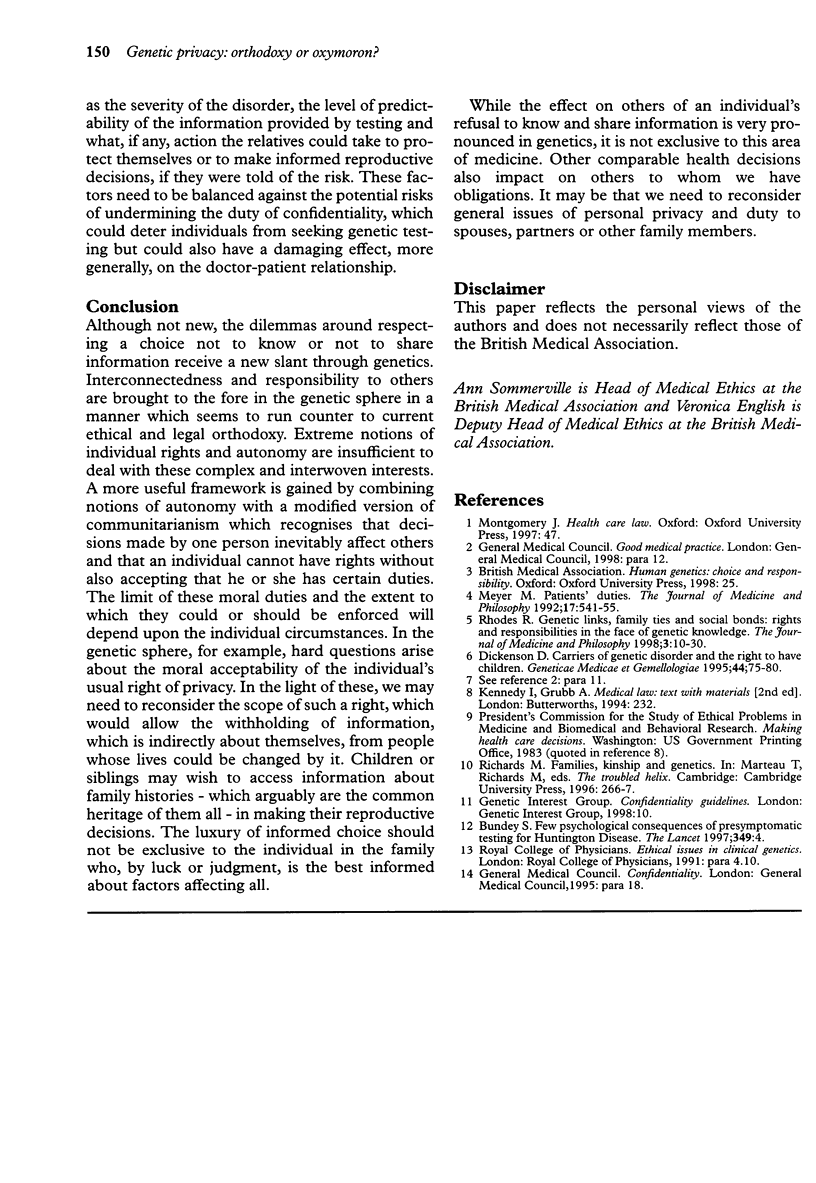
Selected References
These references are in PubMed. This may not be the complete list of references from this article.
- Bundey S. Few psychological consequences of presymptomatic testing for Huntington disease. Lancet. 1997 Jan 4;349(9044):4–4. doi: 10.1016/S0140-6736(05)62155-1. [DOI] [PubMed] [Google Scholar]
- Dickenson D. Carriers of genetic disorder and the right to have children. Acta Genet Med Gemellol (Roma) 1995;44(2):75–80. doi: 10.1017/s0001566000001732. [DOI] [PubMed] [Google Scholar]
- Meyer M. J. Patients' duties. J Med Philos. 1992 Oct;17(5):541–555. doi: 10.1093/jmp/17.5.541. [DOI] [PubMed] [Google Scholar]
- Rhodes R. Genetic links, family ties, and social bonds: rights and responsibilities in the face of genetic knowledge. J Med Philos. 1998 Feb;23(1):10–30. doi: 10.1076/jmep.23.1.10.2594. [DOI] [PubMed] [Google Scholar]



